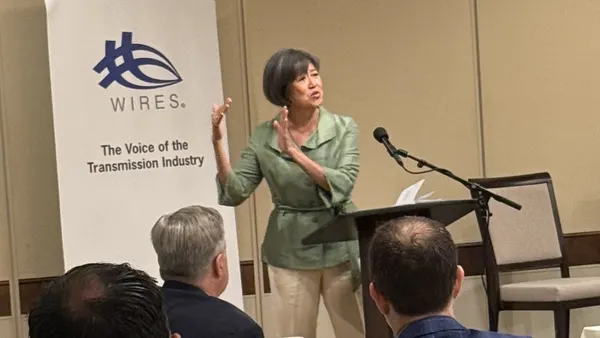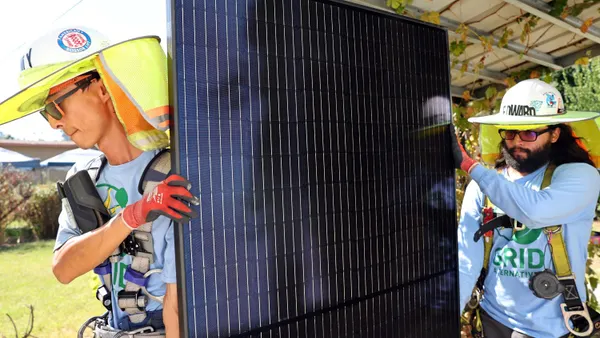Dive Brief:
- A broad group of stakeholders has sent to the Washington Utilities and Transportation Commission (UTC) an outline of "common ground" areas regarding how the state should implement the Public Utility Regulatory Policy Act.
- The parties represent investor-owned utilities, renewable energy advocates and independent power producers, and indicate the sectors believe the renewables law still has a place in the market. PURPA has been under fire for decades, with many utilities claiming it raises costs for their customers.
- Among the areas of common ground are contract lengths; the groups say a qualifying facility will have the option to elect up to 15-year contract terms starting from the date of commercial operation, and separate prices could be set for renewable projects.
Dive Insight:
While PURPA is being debated in Congress, the argument is also playing out in states where utilities are pushing back on mandatory purchase obligations they say force them to buy expensive energy. Passed in 1978, PURPA has been a key to renewables development in states that are not members of regional markets, and was essential to the development of clean energy in states like Idaho, Montana and North Carolina, all of which have seen state-level reforms thanks to pushback from utilities.
In Washington, however, there are signs that a broad swath of the industry is looking for ways to support the law while tweaking its implementation to reflect the modern renewables landscape.
On Monday, joint recommendations were filed by Puget Sound Energy, Northwest and Intermountain Power
Producers Coalition, Renewable Energy Coalition, Renewable Northwest, and Northwest Energy Coalition and Climate Solutions. The groups say they are "outlining areas of common ground regarding implementation of the [PURPA] including obligations for utilities and qualifying facilities."
Proposed common ground changes could include a separate price for renewable energy generators designates as qualifying facilities, though the UTC would still need to rule on capacity payments and avoided cost methodology. It would represent a major change for PacifiCorp and Avista, particularly with regards to standard offer caps and contract terms.
The renewables price would be based on several factors including market price projects and the most recent projects received in response to request for proposals to comply with the state's Energy Independence Act. Estimates included in the utility's current integrated resource plan would also be considered, as would be results of the utility's most recent bidding process to comply with the requirements of the Energy Independence Act.
At the federal level, lawmakers are considering a bill to allow states to waive the purchase obligation if a utility can show it has no need for capacity. With stagnant demand in many parts of the country, that exemption could spread quickly.













